Holding On — Stories of Survival and Dignity in Zaatari Camp
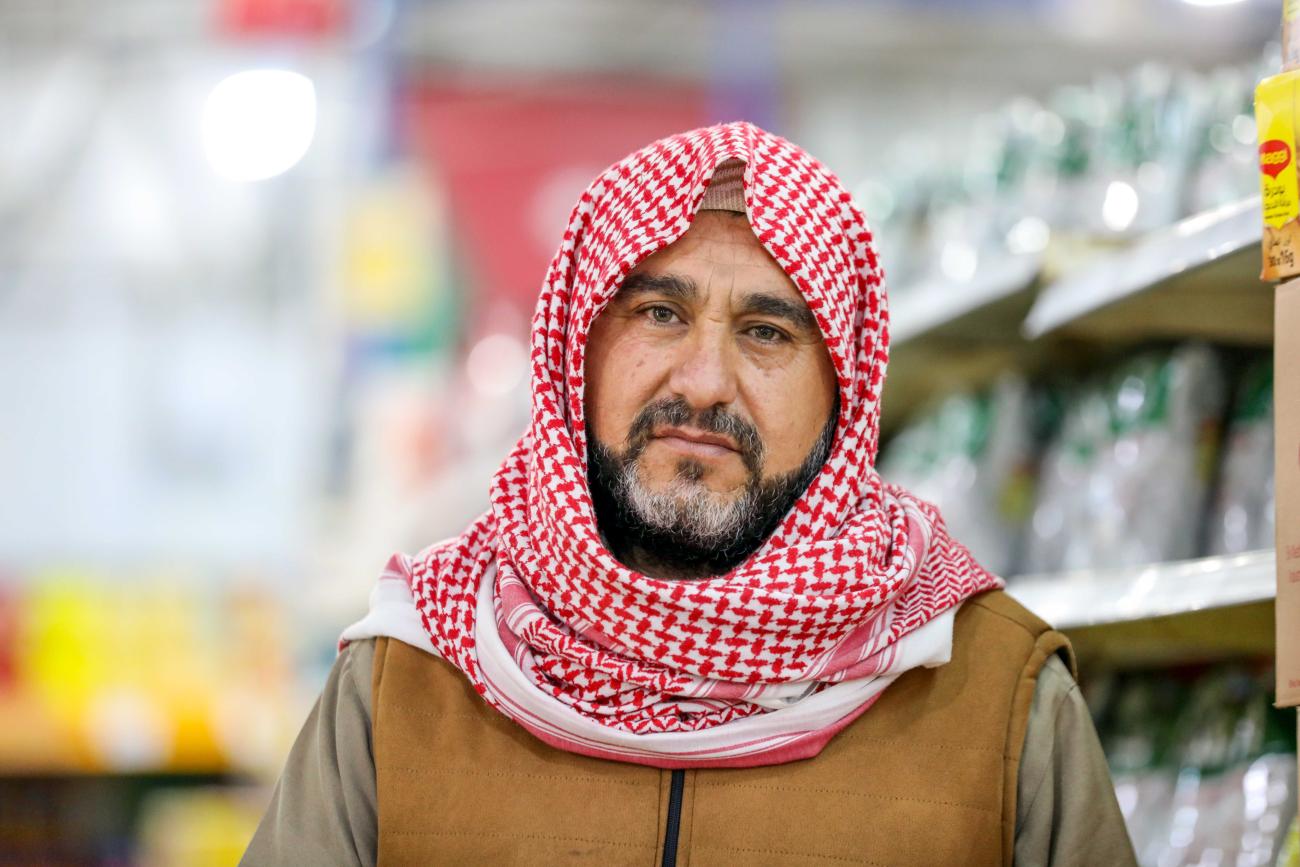
There was something different about Zaatari that morning.
The familiar bustle of the camp’s streets, once lively with the chatter of children and the aroma of shared meals, had given way to a quieter rhythm. For many here, the idea of returning home no longer belonged to the realm of dreams. It was being weighed, not with hope alone, but with careful reflection.
Abu Hamzeh Holds on to Dignity and Hope Amid Rising Hardship
The supermarket, one of the two contracted by WFP, was quieter than usual. As shoppers moved between shelves, eyes careful and carts modest, a man in his late forties caught the eye. He moved with quiet confidence, selecting items with purpose: rice, lentils, cooking oil, a few other basics.
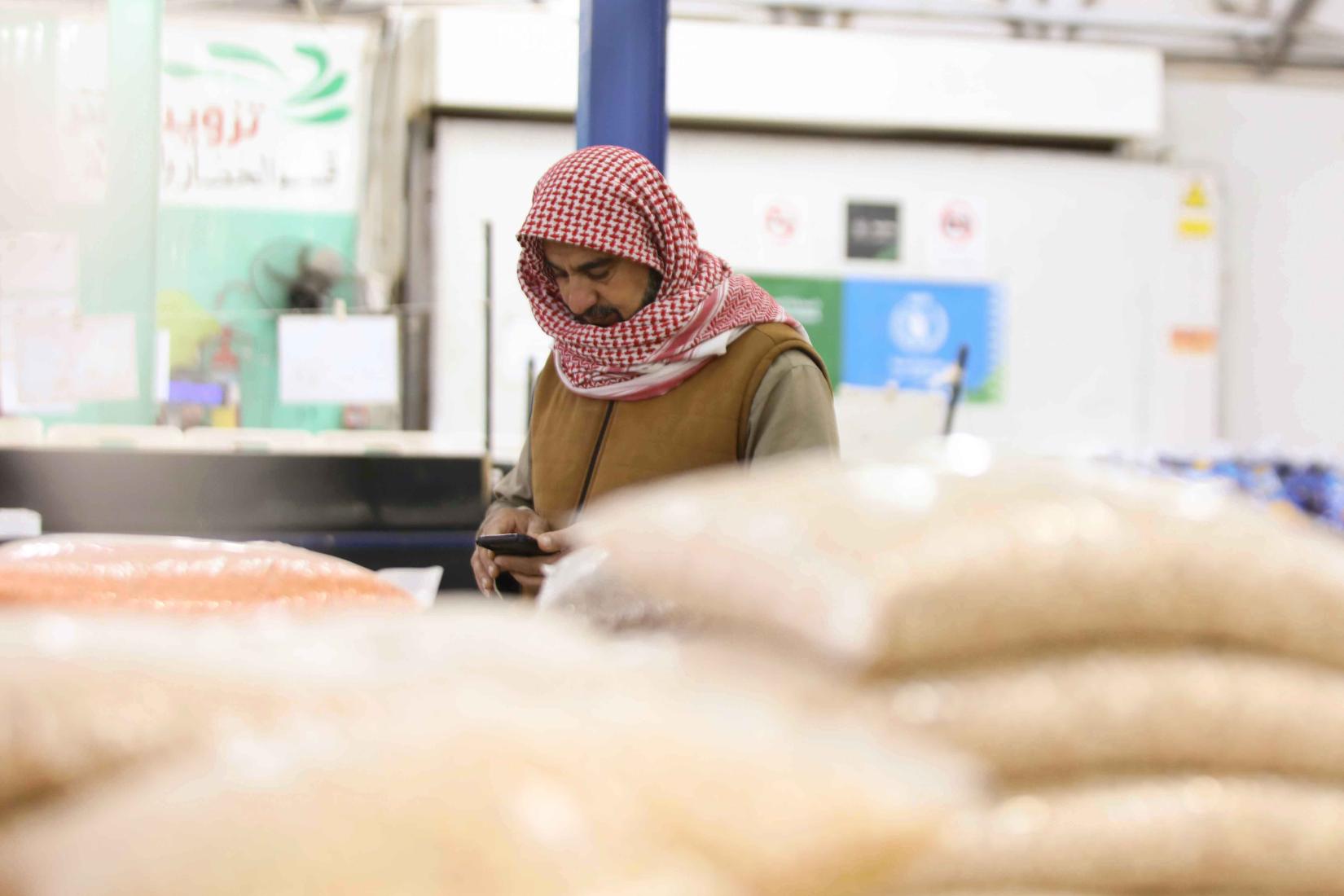
That man was Abu Hamzeh. A father of six, five daughters and a young son, two of whom were born here in the camp. His smile stayed as he welcomed the idea of a chat, inviting us over with the warmth only found in places where hospitality is offered not from abundance, but from generosity of spirit.
“We’ve lived here for nearly thirteen years,” he said. “It’s not easy, but it’s home because we’ve made it one. And because we have no other.”
Like many others in the camp, Abu Hamzeh’s family depends on WFP monthly assistance to meet their food needs. But over the past two years, reduced cash assistance has meant reduced food portions.
“The assistance we get is the reason my children don’t go to sleep hungry,” he said. “Even if it’s less than before, it’s what keeps us going. Without it, I don’t know how we would manage. It gives us a little peace… and dignity.”
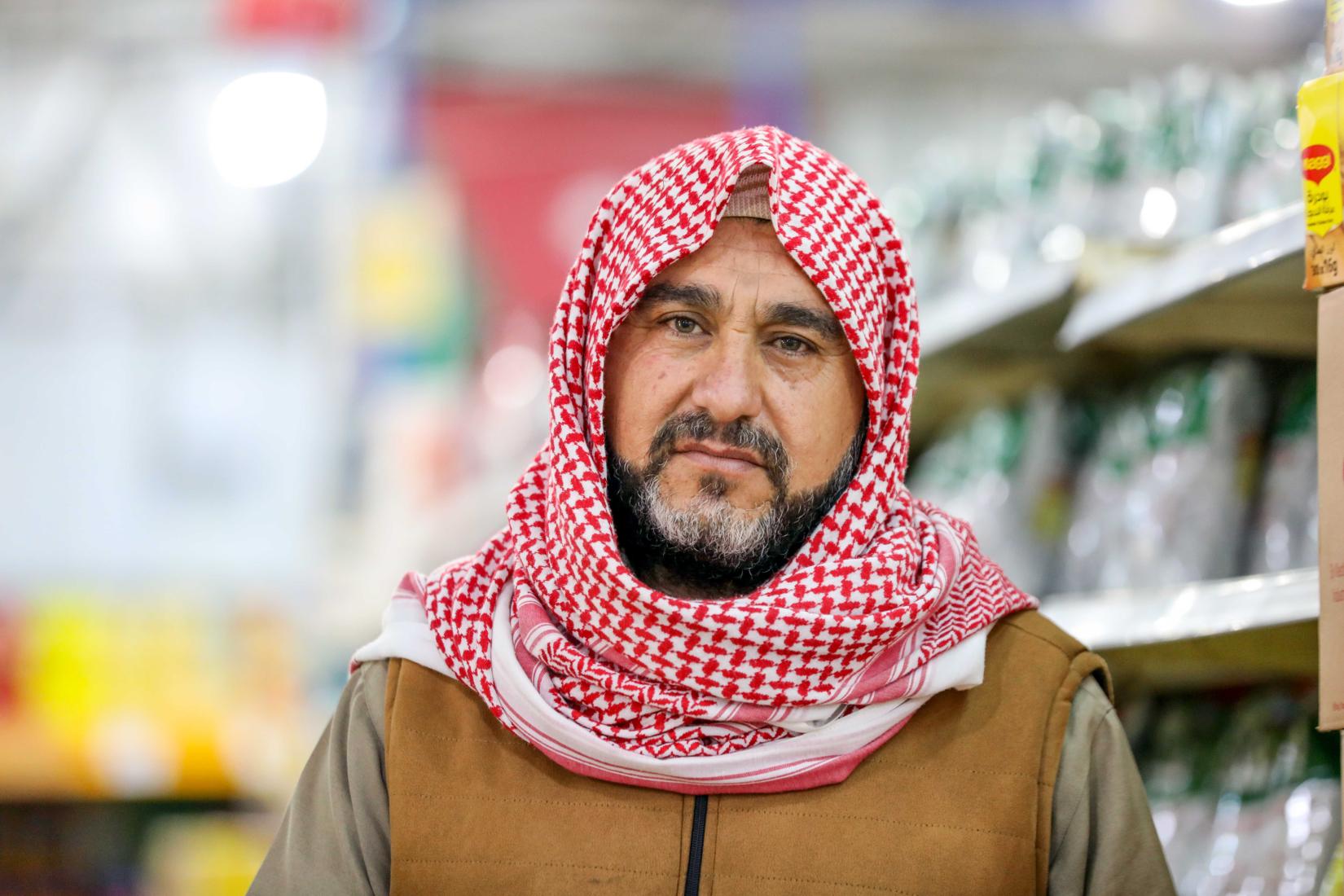
“We used to get more,” he said, pausing as he glanced at his modest cart. “Now, it barely lasts the month. Still, without it, I don’t know what we’d do.”
There’s a deep, quiet pride in Abu Hamzeh, a kind of strength that refuses to wear itself on the outside. But even that strength flinches when talk turns to Syria.
“My house in Daraa is in rubble now,” he said, voice steady but eyes clouded. “Even if I wanted to return, there’s no roof for my children. No work. Just debts from trying to live here.”
His words held no bitterness. Only the resignation of someone who has done the math and found that the numbers don’t add up. Not yet. Then, as he steadied his cart to leave, he added, almost to himself: “Things are still uncertain for my family. At least here, with the little we have, we can still carry on.”
Alia and Naseem Find Strength in Family and the Will to Rebuild
Just a few caravans down the road, a different kind of scene unfolded. Quieter still, yet just as telling. Alia stood outside her shelter, hands deep in a basin of green fava beans. The pods were dark, a little too soft, with edges that had started to blacken — likely bought at a discount from the informal market at Zaatari camp. She sorted through them methodically, saving what she could.
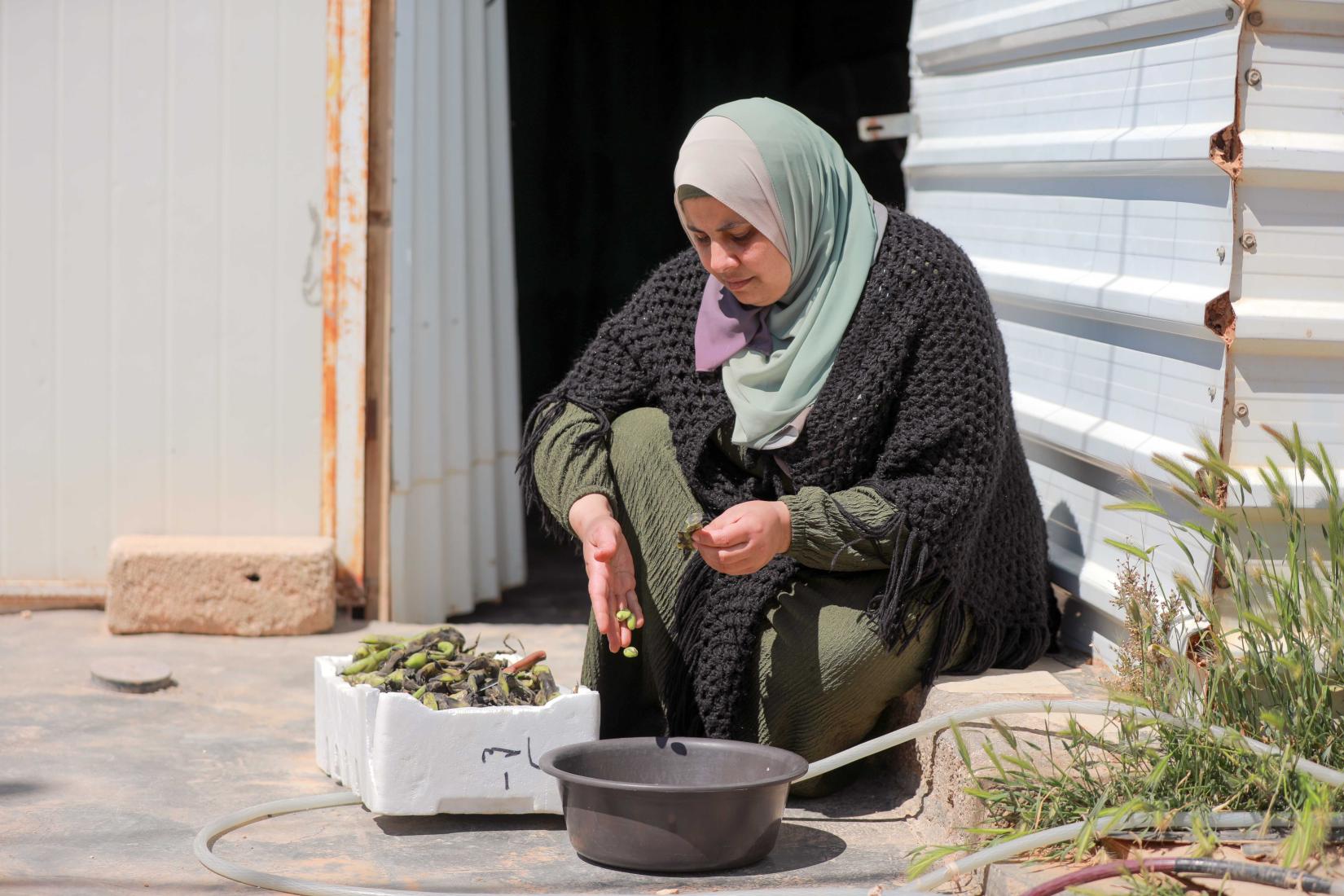
Her husband, Naseem, stood near her, his gaze steady, resting on the empty mattresses where their children usually sat after school.
The triplets are thirteen now, born just two months before the family fled Syria. Today, they were at school — something Alia and Naseem take great pride in. Education is their anchor.
“We’ve sacrificed a lot to keep them going to class,” Alia said, brushing her hands on her dress. “If there’s one thing we can give them, it’s a chance to learn. Something we hope no war can take away.”
Back in Syria, Alia worked at the national electricity company. Here in the camp, she found short-term work under a rotating program with an NGO, but that ended two months ago when the project was cut due to funding shortfalls. Naseem hasn’t been able to work for years. A war injury left him with lasting damage in both legs, and a heart condition limits him further.
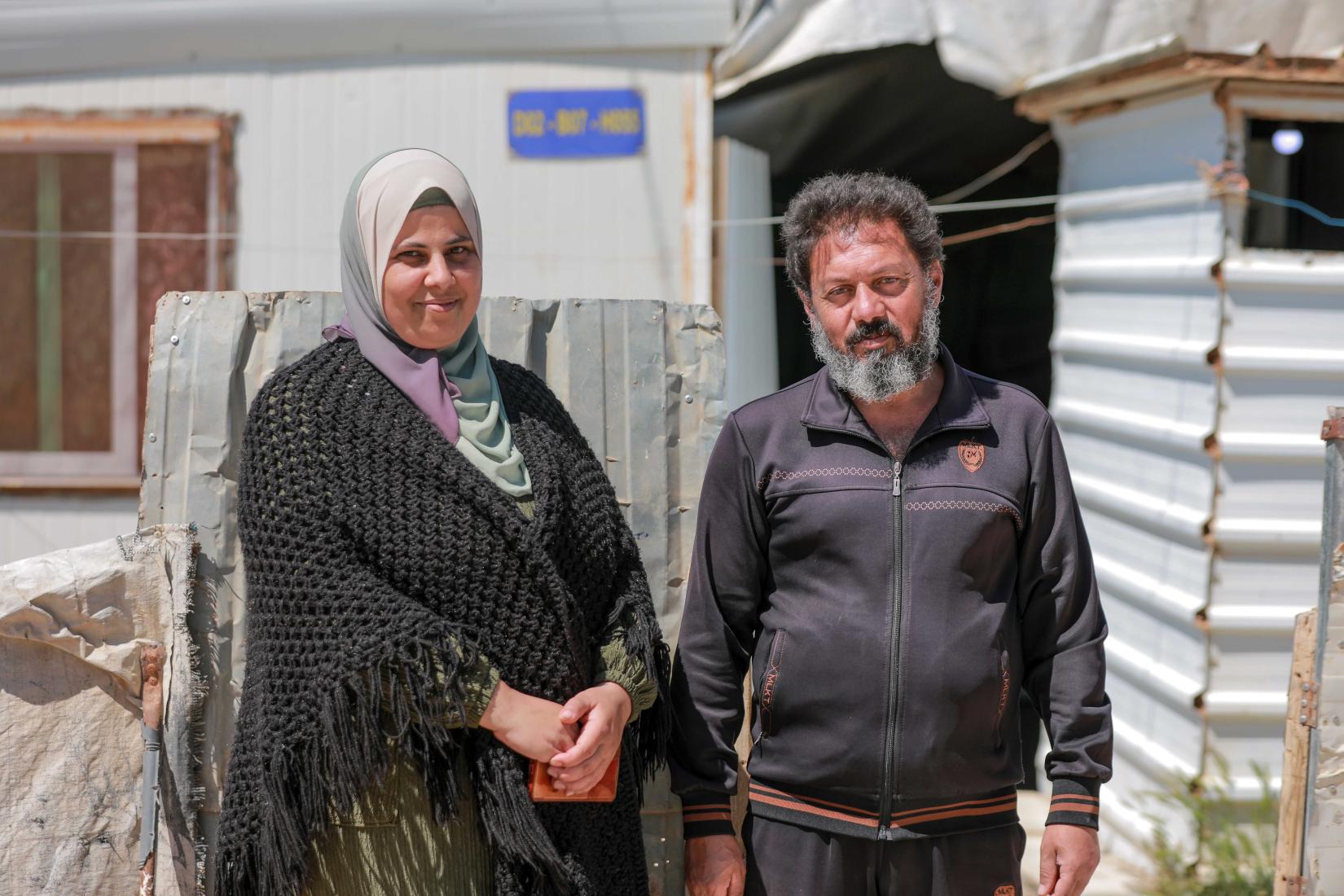
“It’s been harder since I stopped working,” Alia said. “We try to stretch what we have, but it’s never enough. Food assistance has gone down, and daily expenses keep going up. We’re doing our best, but some days, it just feels like too much.”
The family now finds itself walking a tightrope, surviving day by day, while quietly weighing the possibility of returning to Syria. Not because they believe things are better, but because they’re running out of options.
“We’ve thought about going back,” Naseem admitted. “At least there, we might be able to live with relatives. Start again, even if it means starting from nothing.”
But debts, some JOD700 owed to local shops, keep them rooted for now.
“I can’t leave without paying back what we owe,” Naseem said, voice low but firm. “These people trusted us. I want to be able to look them in the eye and say we didn’t run. That we left with clean hands.”
“I remember our first nights here, sleeping in a tent with three newborns,” he added. “If we have to do it again, we will. Whether it’s here or back home, life keeps testing us. But with patience and belief, we’ll rebuild. Even if it’s one brick at a time.”
Donor support has enabled WFP to assist the most vulnerable Syrian refugees in Jordan through some of the most challenging times. Contributions from partners such as the King Salman Humanitarian Aid and Relief Centre (KSrelief) had played a vital role in past years, helping families like Abu Hamzeh’s and Alia’s access the food they rely on. As the context continues to evolve, and with resources stretched thin, continued support is urgently needed to ensure vulnerable families are not left behind.




